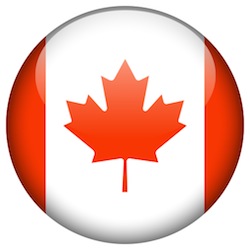Tax
Canadian Authority Reports Surge In Taxpayers Declaring Hidden Assets

The number of taxpayers coming forward in the past 12 months as part of the Canada Revenue Agency’s voluntary disclosure program to report hidden assets was almost 6,000 - up considerably from 1,200 in 2006, a Canadian government spokesman said, Bloomberg reported.
The number of taxpayers coming forward in the past 12 months as part of the Canada Revenue Agency’s voluntary disclosure program to report hidden assets was almost 6,000 - up considerably from 1,200 in 2006, a Canadian government spokesman said, Bloomberg reported.
Philippe Brideau, a spokesman for the Canada Revenue Agency said this five-fold increase had been led by UBS clients, with about 800 customers reporting hidden assets worth about C$218 million ($199 million).
According to data in an e-mail from the tax authority, UBS customers accounted for about 10 per cent of the C$2 billion of offshore income reported in Canada since 2006, topping other institutions, including Credit Suisse and HSBC, Brideau said.
The CRA’s voluntary disclosure program allows taxpayers to come forward to come clean on previous mistakes in order to avoid prosecution.
Following the global financial crisis, governments around the world have made it a key priority to increase transparency and crack down on tax evasion and secrecy.
Earlier this week, the Organization for Economic Co-operation and Development unveiled new proposals to tackle tax avoidance used by multinational companies such as Amazon, Starbucks and Google.
The proposed measures aim to increase transparency and close loopholes which allow companies to shift profits to jurisdictions to avoid paying tax by using complex finance structures known as hybrid mismatch arrangements.
Last month, in an unusual case, two Canadian women with dual US citizenship launched legal proceedings against the Canadian government for its role in the implementation of the Foreign Account Tax Compliance Act, saying it is unconstitutional and violates their privacy.
The lawsuit, filed in the Federal Court of Canada, challenges the constitutionality of the FATCA agreement agreed with the US which came into force on July 1.
The two plaintiffs hope to stop the government from handing over private bank account information from more than one million US residents and their families living in Canada to the US Internal Revenue Service.
Both women were born in the US and as a result have US indicia, requiring their financial data to be passed on to the Internal Revenue Service. However, neither has lived in the US since the age of five, they have never obtained a US passport, worked in the US or filed US tax returns.
